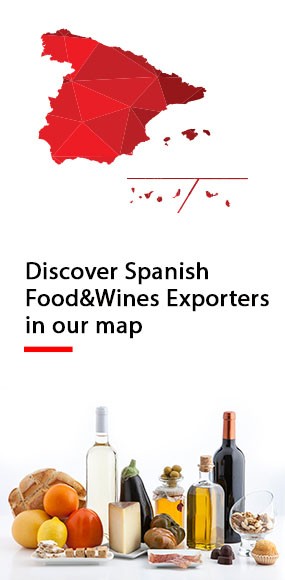.png.transform/rendition-xs/image_image%20(1).png)
Spanish Gin, a Distinctive Mediterranean Flavour
Of all the gin-producing nations, Spain is the clear leader in Europe and even ranks third internationally. No wonder, because Spain can draw from the full bouquet of Mediterranean herbs and spices and the Spanish people cultivates a distinct bar & gin culture.
The gin market in Spain is characterized by an enormous variety of gins and, especially in recent years, a whole host of new, artisan brands and products have been added: Many of the Spanish gin brands are now known and extremely popular beyond the borders. Export increases of more than 30 percent in the last few years impressively demonstrate the success on an international level.
These include, among others, the Barcelona-based Gin Mare, the Galician Nordés Gin, the LAW brand from Ibiza and the not yet so well-known Xoriguer Gin from Menorca. Each has its own special features, its own history(s) and various taste preferences.
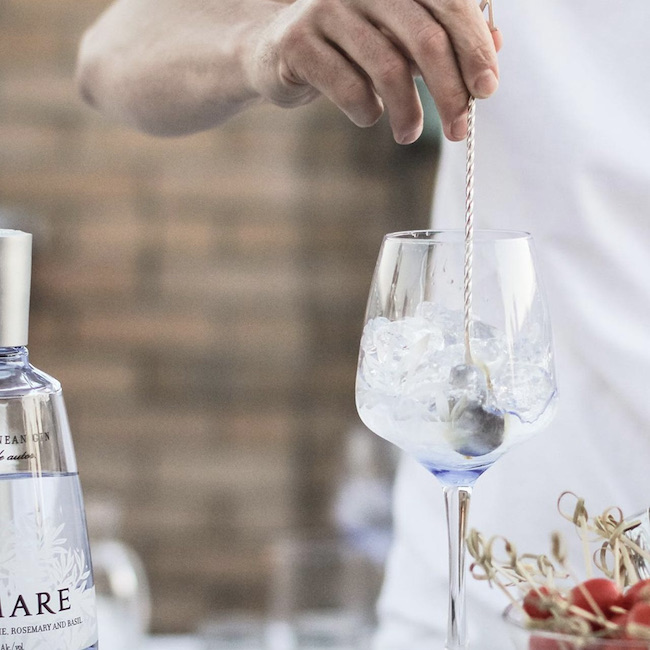
Gin Mare tries to combine the traditional juniper character of gin with Mediterranean culture. The 45 botanicals are distilled in the small Catalan fishing village of Vilanova, between the Costa Brava and the Costa Dorada, south of Barcelona. The selection of botanicals fits the concept: rosemary from Greece, basil from Italy, thyme from Turkey and Arbequina olives are the special ingredients. In keeping with the concept of distilled gin, they are not distilled in one go with the other botanicals, but individually, then blended and distilled together again. The long maceration of individual ingredients is particularly striking: they macerate for about 36 hours in the base alcohol to release their flavors. The citrus fruits used for the gin are even allowed to ferment for a whole year before they are further processed in the gin. This explains the spicy and at the same time mild taste of the gin.
What happens when a sommelier, a winery owner and a distiller join forces is demonstrated by the Galician Nordés Gin from Osborne. It is not based on a distillate from grain, as is usually the case, but on the Spanish grape variety Albariño, whose distillate is refined by macerating eleven botanicals. Six of them are wild herbs of the region: sage, laurel, lemon herb, eucalyptus, mint and the seaweed salicornia. The latter gives the gin a very fresh aroma.
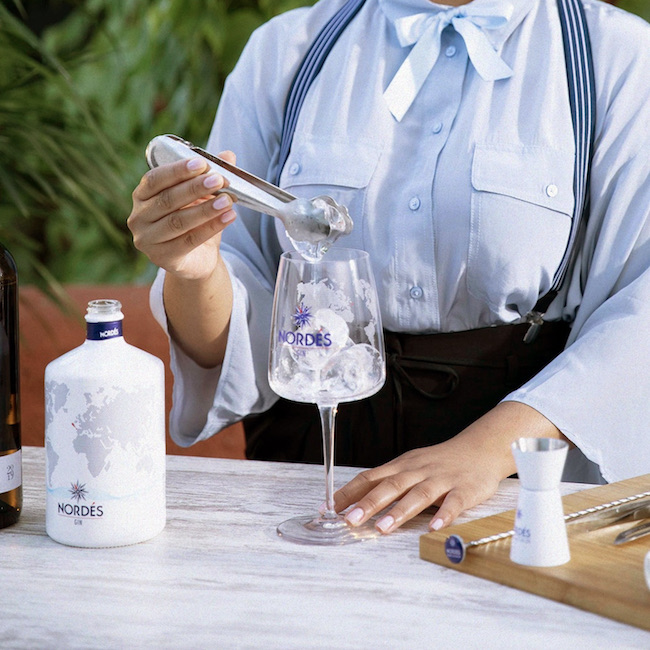
Nordés Gin is rounded off with five botanicals from overseas: juniper, ginger, cardamom, hibiscus and tea. Nordés thus becomes a floral gin with floral tones of rosemary, lemon and a little cinnamon.
Of course, there are not only gins from the mainland, but also from the popular islands.
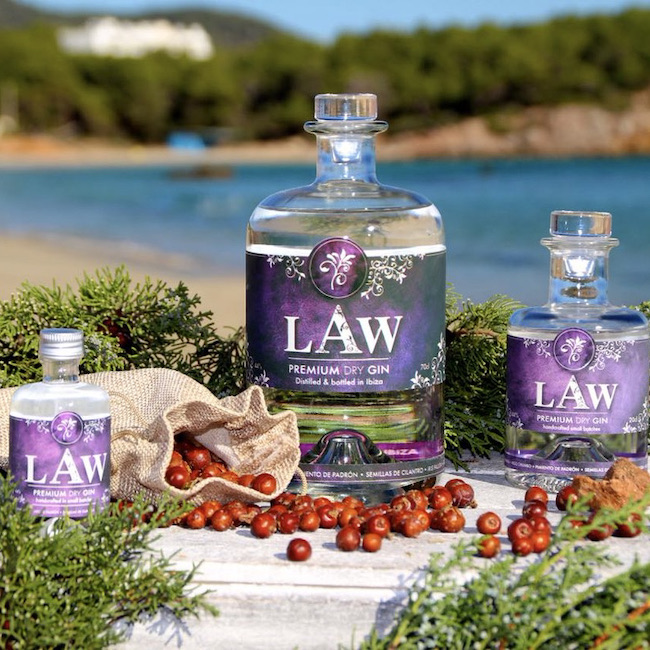
LAW Gin from sunny Ibiza was created by three friends, Luna, Alexander and Wolfgang (LAW). Ibiza is perfect for an excellent gin, as many botanicals grow there (almost) right by the roadside. Juniper in particular thrives very well on the island due to the Mediterranean climate, and cardamom and lemon, along with Spanish cucumber, are further botanicals for this gin. The gin is produced in the same way as a London Dry Gin on the basis of wheat alcohol; this means that no artificial flavorings or sugar are added during the production process. The gin is flavored by means of mazeration; the botanicals are first steeped in the base spirit for a few hours before the mixture is carefully heated.
The gin is distilled in a traditional alambic with a great deal of sensitivity on the part of the distillers. Spring water from local sources is used to bring the finished distillate to a drink strength of 44% vol.
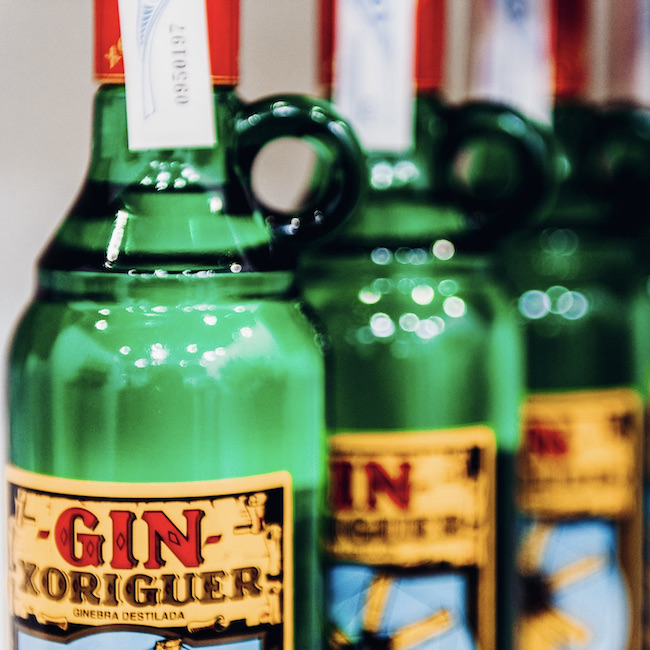
The less frequented island of Menorca also has its own gin, which is distilled directly at the port of Mahón: Xoriguer, a soft, fine and clearly juniper-heavy gin on the palate. In the 18th century, many sailors and English soldiers were stationed on the island, which belonged to Great Britain at the time, and were looking for gin, which, however, did not exist on the island at that time. It was only some craftsmen from Mahón who introduced juniper beers to produce gin based on wine which is typical of the Mediterranean region. In the 19th century, gin consolidated its position as the islanders' favorite drink and became an inseparable part of all public and family festivities. Already at the beginning of the 20th century, the Xoriguer brand emerged from its family and creative origins. Xoriguer is the name of an old windmill that has existed since 1784 and is still in the family business today. The gin is a result of the distillation of wine alcohol, selected juniper berries from the neighbouring mountainous regions of the Mediterranean and secret aromatic herbs, distilled in historic copper stills. The respect for the manufacturing tradition is so deep that even the fuel used for distillation today is still firewood, the aromas of which can be tasted from the gin.
Only these four examples make it clear that Spanish gin, whether from the mainland or the islands, has both history and tradition as well as an enormous variety of flavors. This makes clear why it has so successfully found its place in the world of gins!
For the German market, "There's still room for improvement." However, Nils Wrage, editor-in-chief of the magazine 'Mixology' emphasizes the immense influence that the Spanish gin & tonic culture has had on the local bars and drinking habits. "For countless bar people and connoisseurs, Spain or Spanish-influenced gastronomy was the first point of contact with a new perception of gin & tonic as a 'real drink'," says Wrage. "At that time, Gin Mare undoubtedly did important pioneering work for the entire gin market, not just the German one. Gin Mare's signal effect for the revitalization of the category was on a par with brands like Monkey 47 or Hendrick's. And of course I'm pleased that you now see a bottle of Xoriguer de Mahón in more and more bars, which not only tastes great and unique, but is finding more and more friends among bar people."

